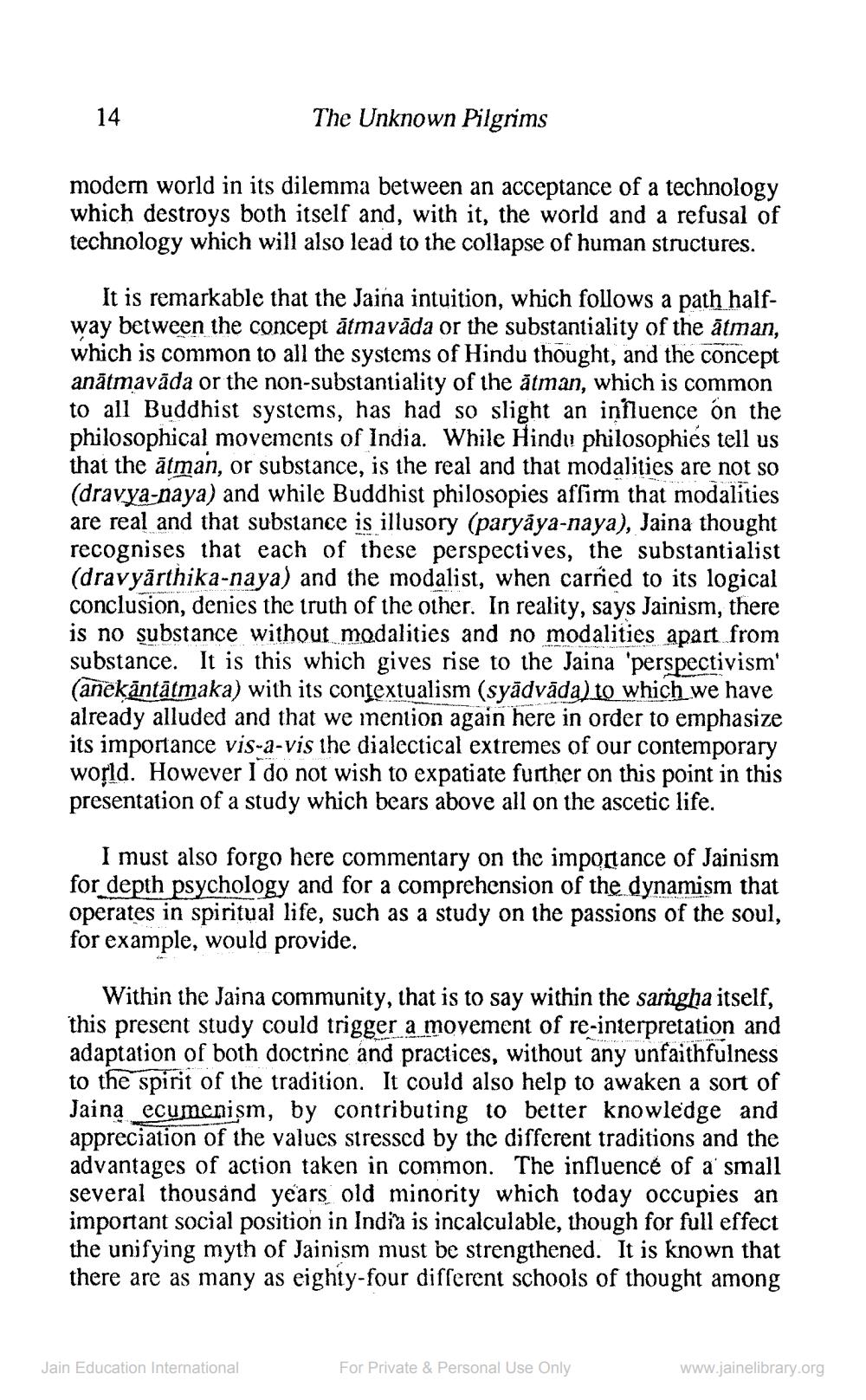________________
The Unknown Pilgrims
modern world in its dilemma between an acceptance of a technology which destroys both itself and, with it, the world and a refusal of technology which will also lead to the collapse of human structures.
14
It is remarkable that the Jaina intuition, which follows a path halfway between the concept ātmavāda or the substantiality of the atman, which is common to all the systems of Hindu thought, and the concept anātmavāda or the non-substantiality of the atman, which is common to all Buddhist systems, has had so slight an influence on the philosophical movements of India. While Hindu philosophies tell us that the atman, or substance, is the real and that modalities are not so (dravya-naya) and while Buddhist philosopies affirm that modalities are real and that substance is illusory (paryaya-naya), Jaina thought recognises that each of these perspectives, the substantialist (dravyārthika-naya) and the modalist, when carried to its logical conclusion, denies the truth of the other. In reality, says Jainism, there is no substance without modalities and no modalities apart from substance. It is this which gives rise to the Jaina 'perspectivism' (anekāntātmaka) with its contextualism (syādvāda) to which we have already alluded and that we mention again here in order to emphasize its importance vis-a-vis the dialectical extremes of our contemporary world. However I do not wish to expatiate further on this point in this presentation of a study which bears above all on the ascetic life.
I must also forgo here commentary on the importance of Jainism for depth psychology and for a comprehension of the dynamism that operates in spiritual life, such as a study on the passions of the soul, for example, would provide.
Within the Jaina community, that is to say within the samgha itself, this present study could trigger a movement of re-interpretation and adaptation of both doctrine and practices, without any unfaithfulness to the spirit of the tradition. It could also help to awaken a sort of Jaina ecumenism, by contributing to better knowledge and appreciation of the values stressed by the different traditions and the advantages of action taken in common. The influence of a small several thousand years old minority which today occupies an important social position in India is incalculable, though for full effect the unifying myth of Jainism must be strengthened. It is known that there are as many as eighty-four different schools of thought among
Jain Education International
For Private & Personal Use Only
www.jainelibrary.org




